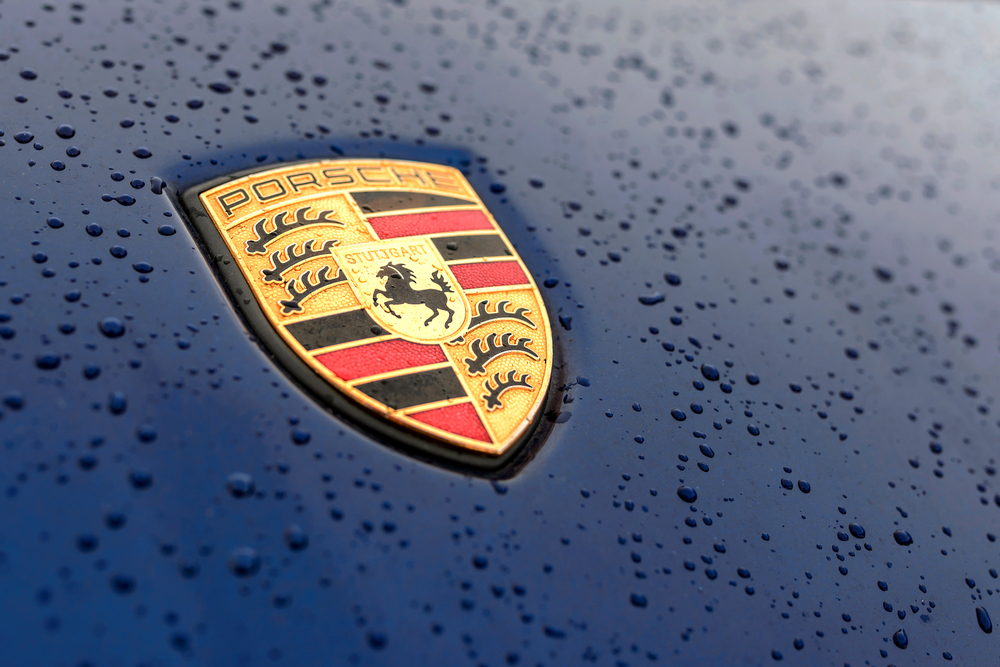The future of sustainable transportation: How e-fuel is revolutionizing the industry with Porsche leading the charge.

As the world continues to grapple with the environmental challenges posed by traditional fossil fuels, the search for cleaner, more sustainable energy sources has become increasingly urgent. Enter E-fuel, a groundbreaking technology that is set to revolutionize the transportation industry and pave the way for a more sustainable future. E-fuel, or electrofuel, is not just a buzzword—it’s a promising innovation that could play a pivotal role in reducing carbon emissions and making our world a greener place. And at the forefront of this movement is none other than Porsche, a brand synonymous with innovation, performance, and a commitment to sustainability.
What is E-Fuel?
E-fuel, short for electrofuel, is a synthetic fuel produced using renewable energy sources. Unlike traditional fossil fuels, which are extracted from the earth and release large amounts of carbon dioxide when burned, E-fuels are created through a process that captures carbon dioxide from the atmosphere and combines it with hydrogen produced from water using renewable energy, such as wind or solar power. The result is a liquid fuel that can be used in existing internal combustion engines, jet engines, and other applications without the need for significant modifications.
Porsche: A Pioneer in E-Fuel Development
Porsche, a company renowned for its engineering prowess and commitment to sustainability, has emerged as a frontrunner in the development and promotion of E-fuel technology. Recognizing the urgent need to reduce carbon emissions while maintaining the performance and driving experience that enthusiasts expect from its vehicles, Porsche has invested heavily in E-fuel research and production.
In collaboration with Siemens Energy and other partners, Porsche has spearheaded the construction of one of the world’s first industrial-scale E-fuel production facilities in Chile. This groundbreaking project, known as the Haru Oni plant, is strategically located to take advantage of the region’s abundant wind energy resources. The facility aims to produce 130,000 liters of E-fuel annually in its initial phase, with plans to scale up production significantly in the coming years.
Supporting Over 1.4 Billion Porsche Vehicles—Classic and Modern
One of Porsche’s most significant motivations for advancing E-fuel technology is the fact that there are over 1.4 billion vehicles on the road worldwide, many of which are Porsches. This includes not only the latest models but also a vast number of classic and vintage Porsches cherished by collectors and enthusiasts. Porsche recognizes that while the shift to electric vehicles (EVs) is crucial, it’s equally important to offer a sustainable solution for the millions of internal combustion engine vehicles that will remain in use for years to come.
For classic Porsche owners, E-fuel presents a particularly exciting opportunity. These vintage vehicles, often seen as symbols of automotive history and craftsmanship, can continue to be driven and enjoyed without compromising on environmental responsibility. Porsche’s commitment to E-fuel ensures that their customers, whether they own a brand-new 911 or a classic 356, can fuel their passion for driving while also contributing to a greener future.
The Benefits of E-Fuel
One of the most compelling advantages of E-fuel is its potential to significantly reduce greenhouse gas emissions. Since the carbon dioxide used in the production of E-fuel is captured from the atmosphere, the fuel is essentially carbon-neutral. This means that when E-fuel is burned, it releases the same amount of carbon dioxide that was initially captured, resulting in a net-zero impact on the environment.
Moreover, E-fuel can be seamlessly integrated into the existing fuel infrastructure. Unlike other alternative energy sources, such as electric vehicles, which require a complete overhaul of current systems, E-fuel can be used in today’s cars, airplanes, and ships without major changes. This makes it an attractive option for industries that are hard to decarbonize, such as aviation and shipping.
For Porsche, this means that their iconic sports cars, whether new or old, can continue to deliver the exhilarating driving experience they are known for, while dramatically reducing their carbon footprint. By embracing E-fuel, Porsche is ensuring that all of its customers can enjoy the thrill of driving a high-performance vehicle without compromising on environmental responsibility.
E-Fuel in Action
The potential applications of E-fuel are vast, and Porsche is already demonstrating how this technology can be put into practice. The company plans to use E-fuel produced at the Haru Oni plant in its motorsport activities, showcasing the performance capabilities of the fuel under the demanding conditions of competitive racing. This move not only highlights the viability of E-fuel in high-performance engines but also underscores Porsche’s commitment to leading the automotive industry toward a more sustainable future.
In the broader automotive sector, E-fuel offers a promising solution for reducing emissions from existing vehicles. While electric vehicles are gaining popularity, there are still millions of internal combustion engine vehicles on the road today. E-fuel could provide a cleaner alternative to traditional gasoline and diesel, allowing these vehicles to operate with a much lower environmental impact.
Conclusion
E-fuel represents a promising step forward in the quest for sustainable energy, with Porsche playing a pivotal role in its development and promotion. The company’s commitment to reducing carbon emissions, while preserving the performance and excitement of its vehicles, sets a powerful example for the entire industry. As we look to the horizon, E-fuel, championed by innovators like Porsche, offers a bright and hopeful path toward a greener, cleaner world—one where every Porsche, whether a modern marvel or a classic icon, can be driven with pride and sustainability in mind.
